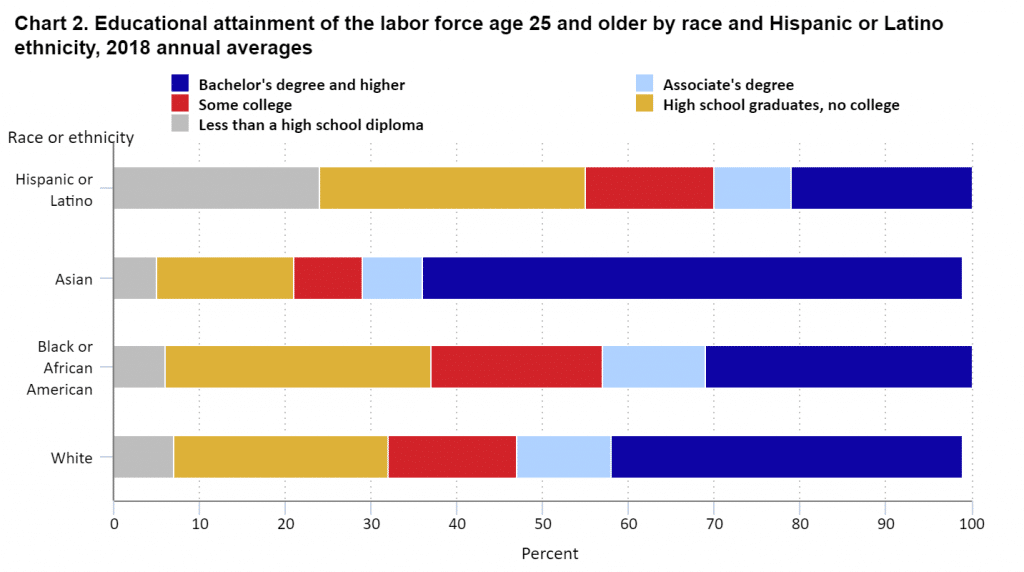Do Black Professionals Matter?
October 26, 2020
In the United States and across the world, people, governments, institutions, and businesses (large and small) are pledging to stand with the Black community to combat systemic racism. These demonstrations are certainly united in symbolism, yet when one sees images of business leaders kneeling for a change in racial injustice, one has to question what serious actions have been taken to back up these symbolic claims within their individual organizations. Yes, these are actions worthy of recognition, but it is difficult to truly understand the intention of Corporate America when the history of its company leaders and employees prove quite the contrary.
Systematic racism is a centuries-old problem that was addressed by the Civil Rights Act of 1964. That legislation attempted to mark the end of structural racism in America and the start of increased economic and social equality for Black Americans. While there were improvements, black workers continued to experience difficulty obtaining employment limited promotion opportunities, facing daily encounters of violence, aggression, and humiliation by their oppressors within these same companies. Now in 2020, 56 years later, the legislation and affirmative action policies implemented to combat discriminatory hiring practices have not been enough to ease the qualm that there is an additional problem that exists–a microaggression of a sort–that prevents Black professionals from having equal and just workplace considerations.
If you can believe it, only 3.2% of African American professionals hold executive and senior management positions. An even more staggering sub-1% hold the position of CEO at Fortune 500 companies.
Just look at African American representation at some top companies:
- 4 CEOs at Fortune 500 companies
- 2.2% of Morgan Stanley’s senior executives
- 3.5% of Wells Fargo’s senior executives
- 3.1% of Facebook’s senior leadership
- 3.6% of Google’s senior leadership
- 4.4% of Slack’s senior leadership
- 5.3% of Twitter’s senior leadership
- 2.7% of Microsoft’s executive staff
Surely, there must be some talented African Americans that are qualified for these positions? Could they be going unnoticed because they are outnumbered by white workers? The workforce is dominated by 78% white workers with black workers making up just 13%. Out of that 13%, 51% are at least high school graduates or have some college, 12% have earned an Associate’s degree, and 31% have a Bachelor’s degree or higher. Increased educational attainment is supposed to translate into an increase in professional opportunities and income but for some reason, Black professionals are being overlooked when it comes to being hired or promoted. In the wake of the recent events surrounding the death of George Floyd, Morgan Stanley’s Chief Executive Officer James Gorman promoted two African-American women to positions on its operating and management committees (after he watched thousands of protesters walk down the street past his Manhattan apartment window). While it may be great that these two qualified women earned promotions, one should question why such a promotion occurred now. Do Black professionals only matter after a black man loses his life or when people hit the streets demanding change? Although Black professionals should always matter, the data doesn’t illustrate that they do.

Source: U.S. Bureau of Labor Statistics, Current Population Survey (CPS)
Companies need to go beyond public statements of solidarity against systemic racism. Organizations, institutions, and companies alike, should begin to take a hard look in the mirror to examine their efforts (before the protests) to address racial inequality in the workplace. Such an examination would include a review of hiring practices, salary structure, advancement policies, management demographics, and workplace culture. This article is being written because chances are that most companies and organizations have not created great workplace experiences for Black Professionals. Therefore, even if a company or organization’s examination reveals a history of a failure to ensure an equitable workplace for Black professionals, then a company or organization now has the responsibility to impact the future for its Black workforce.
Considerable favor and goodwill can be bestowed upon a company that makes a commitment to ensure that Black professionals are presented with opportunities in an equitable fashion. Concrete actions go beyond the implementation of empty diversity and inclusion programs or mandates that require employees to participate in cultural sensitivity training. Meaningful actions to create an equitable workplace for Black professionals require the collaborative efforts of human resources, management, senior executives, and business owners to materialize active change. The solidarity statements have been published. The knees have been taken and the images have been posted on Instagram. The world is watching. If you believe that Black Lives Matter then Black professionals should too.
